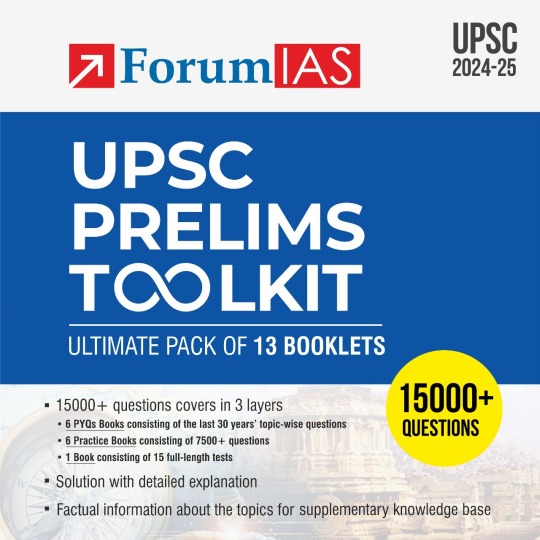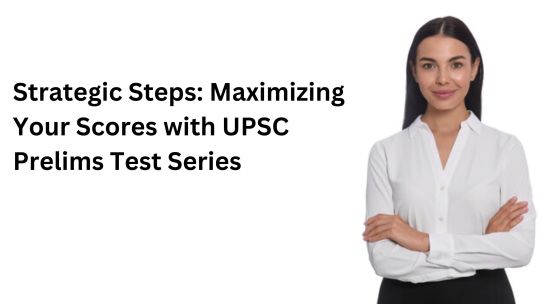#upsc time management mistakes
Text
Negative Habits to Avoid for UPSC Preparation
Imagine preparing for the UPSC exam is like setting off on a thrilling adventure. But just like any adventure, there are challenges to overcome. It takes a lot of hard work, sticking to your goals, and having a good plan. But, sometimes, even if you're really trying your best, you might find yourself doing things that could make it harder for you to succeed. In this guide, we'll explore common negative habits faced by UPSC aspirants and provide straightforward solutions to overcome them. By implementing these simple strategies, aspirants can navigate through challenges effectively and achieve success in their UPSC journey.
Procrastination - Putting Off Tasks

Procrastination is when we delay tasks or waste time on unimportant things. Many UPSC aspirants struggle with procrastination, which can lead to missed study sessions and last-minute pressure.
To overcome procrastination, break your study tasks into smaller, manageable parts. To create a sense of urgency, establish particular deadlines for every task. By taking small steps consistently, you can avoid procrastination and stay on track with your study schedule.
“You may delay, but time will not.”
― Benjamin Franklin
There are always distractions, if you allow them! Successful people remain optimistic and concentrated on their goals regardless of their surroundings. They stay focused. They avoid getting distracted, which is common in today's digital world. Social media, notifications, and other distractions can easily divert our attention away from studying.
To avoid distractions, create a dedicated study space that is free from potential distractions. Turn off notifications on your phone and use productivity tools to block distracting websites. Set specific times for studying and avoid multitasking. By minimizing distractions, you can improve focus and productivity during your study sessions.
Distractions - Losing Focus

“Work is hard. Distractions are plentiful. And time is short.”
― Adam Hochschild
Lack of Consistency

Consistency is really important for doing well in UPSC preparation. It’s key to success. However, many aspirants struggle to maintain a consistent study routine.
To overcome this, establish a daily study schedule and stick to it religiously. Make sure you stick to your study schedule and give it more importance than other things. Set realistic goals for each study session and keep checking how well you're doing. By making studying a habit and sticking to a consistent routine, you can maximize your productivity and progress in your UPSC preparation.
“Success isn't always about greatness. It's about consistency.
Consistent hard work leads to success. Greatness will come.”
― Dwayne Johnson
Neglecting Health and Adequate Sleep

UPSC preparation can be mentally and physically demanding, and many aspirants neglect their health in pursuit of their goals. However, neglecting your health can have negative consequences on your ability to study effectively. Sleep is essential for cognitive function, memory retention, and overall well-being. However, many aspirants neglect their sleep in favor of studying late into the night. This can lead to sleep deprivation, which can impair your ability to focus, concentrate, and retain information.
To prioritize your health, make sure to get an adequate amount of sleep each night. Aim for at least 7-8 hours of sleep to ensure that your mind and body are well-rested. In addition, make time for regular exercise and physical activity to reduce stress and improve overall well-being. Finally, don't forget to eat a balanced diet and stay hydrated to fuel your body and brain for studying.
Relying on One Study Method

Every aspirant has their own preferred study method, whether it's reading, taking notes, or practicing past papers. However, relying solely on one study method can limit your learning and comprehension.
To overcome this, try diversifying your study methods to engage different parts of your brain. For example, if you're used to reading, try incorporating more visual aids or discussing concepts with peers. Try out various methods of studying until you discover which one suits you the most. By diversifying your study methods, you can improve your understanding and retention of the material.
Negative self-talk can be dangerous to your confidence and motivation. Many aspirants struggle with self-doubt and fear of failure, which can hold them back from reaching their full potential.
To overcome negative self-talk, practice self-compassion and positive affirmations. Instead of focusing on your shortcomings, celebrate your achievements and strengths. Be around friends and family who support you and have faith in your skills. By cultivating a positive mindset and practicing self-love, you can overcome self-doubt and achieve success in your UPSC journey.
Negative Self-Talk - Self-Doubt

"One important key to success is self-confidence.
An important key to self-confidence is preparation."
― Arthur Ashe
Trying to Read Everything

UPSC aspirants are often overwhelmed by the sheer volume of reading material available. Many aspirants feel pressured to read every book and resource on a given topic, leading to stress and burnout.
To overcome this, focus on quality over quantity when it comes to reading. Prioritize essential books and resources that cover the core concepts and topics of the UPSC syllabus. Take notes as you read to help reinforce your understanding and retention of the material. Remember, it's better to thoroughly understand a few key concepts than to skim/go through numerous resources without grasping the core concepts.
Disorganization can hinder your ability to study effectively and efficiently. Many aspirants struggle to keep track of study materials, deadlines, and important dates.
To overcome this, create a study schedule and organize your study materials in a systematic manner. Use folders, binders, or digital tools to keep your study materials organized and easily accessible. Break down your study schedule into smaller, manageable tasks and set deadlines for each task. By staying organized, you can reduce stress and improve productivity in your UPSC preparation.
Lack of Organization

“For every minute spent organizing, an hour is earned.”
― Benjamin Franklin
Misplaced Study Groups

Study groups can be a valuable resource for UPSC aspirants, providing support, motivation, and shared knowledge. However, not all study groups are created equal, and some aspirants may find themselves in study groups that are not conducive to effective studying.
To overcome this, choose study partners wisely and find individuals who are serious and committed to their UPSC goals. Look for study groups or forums where you can engage with like-minded aspirants who share your dedication and enthusiasm for UPSC preparation. By surrounding yourself with supportive and motivated study partners, you can enhance your learning and stay on track with your UPSC goals.
Overcoming negative habits is essential for UPSC aspirants to succeed in their journey. By implementing simple strategies such as breaking tasks into smaller parts, minimizing distractions, maintaining consistency, prioritizing health, diversifying learning methods, fostering a positive mindset, finding a balance between work and study, focusing on quality reading, staying organized, choosing study partners wisely, using the internet judiciously, and prioritizing sleep, aspirants can navigate through challenges effectively and achieve success in their UPSC preparation. Remember, success in the UPSC examination requires dedication, perseverance, and a willingness to overcome obstacles. Keep pushing forward, stay focused on your goals, and believe in yourself—victory is within reach!
#upsc#education#upsc2024#upscpreparation#upscstudymaterial#quotes for upsc aspirants#quotes for students motivation#Misplaced Study Groups in UPSC Preparation#Lack of Organization in UPSC Preparation#Trying to Read Everything in UPSC Preparation#Negative Self-Talk - Self-Doubt#Relying on One Study Method#Neglecting Health and Adequate Sleep in upsc preparation#Lack of Consistency in upsc preparation#Distractions in upsc preparation#procrastination in upsc preparation#Procrastination#upsc syllabus ignorance#upsc exam strategy mistakes#ENSURE IAS coaching tips#upsc self-study bad habits#upsc time management mistakes#ENSURE IAS academy tips#upsc coaching center habits to avoid#upsc study routine mistakes#UPSC#bad habits for upsc exam#common mistakes in upsc preparation#ENSURE IAS preparation tips#negative habits for upsc aspirants
1 note
·
View note
Text
Avoiding Common Mistakes When Preparing for the IAS Exam
Embarking on the journey to conquer the Indian Administrative Service (IAS) examination is akin to preparing for a marathon, where every step counts and preparation is key. However, even the most determined aspirants can inadvertently fall into pitfalls that not only cost them precious time but can also derail their entire strategy. Enter Vajirao IAS Academy, a beacon of guidance in the tumultuous sea of IAS exam preparation, committed to steering candidates clear of common yet overlooked mistakes. With its proven track record of nurturing top-ranking officers, Vajirao IAS Academy offers an insider’s perspective on how to navigate this challenging journey with finesse.
In this blog, we peel back the layers on some of these critical missteps through insights garnered from years of experience and success stories at Vajirao IAS Academy. From underestimating the importance of a well-structured study plan to overlooking the value of mock exams and feedback sessions—each mistake is dissected to offer you actionable strategies that promise not just preparation but mastery over your IAS exam endeavor. Let's dive into unlocking secrets that can transform your approach and help you avoid common traps set by one of India's toughest examinations.
#mistakes in upsc preparation#upsc current affairs#ias time management techniques#ias mock test series#best upsc study materials
0 notes
Text
Preparing for the UPSC Exam: A Comprehensive Guide
The UPSC (Union Public Service Commission) examination is a highly competitive and prestigious exam that attracts thousands of aspirants each year. Clearing the UPSC exam requires thorough preparation, dedication, and a strategic approach. In this blog, we’ll discuss how to prepare effectively for the UPSC exam, incorporating keywords such as “IAS coaching in Kolkata,” “UPSC coaching in Kolkata,” “best IAS coaching in Kolkata,” “top IAS coaching in Kolkata,” and “UPSC coaching in Kolkata fees.”
Understanding the UPSC Exam
Before diving into preparation strategies, it’s crucial to understand the structure and pattern of the UPSC exam:
Preliminary Examination (Prelims): This is the first stage of the UPSC exam, consisting of two objective-type papers — General Studies Paper-I and CSAT (Civil Services Aptitude Test) Paper-II.
Main Examination (Mains): Candidates who clear the prelims move on to the mains, which consists of nine descriptive papers, including Essay, General Studies (GS) Papers I, II, III, and IV, Optional Subject Paper I and II, and Indian Language and English papers.
Interview (Personality Test): Candidates who clear the mains are called for the interview stage, where their personality, communication skills, and suitability for the civil services are assessed.
Preparation Strategies for UPSC Exam
Understand the Syllabus: Familiarize yourself with the UPSC syllabus for both prelims and mains. It’s essential to know what topics are covered in each subject to create an effective study plan.
Create a Study Plan: Develop a structured study plan that covers all subjects and topics within a realistic timeframe. Allocate time for daily study, revision, and practice.
Refer to Standard Books: Invest in quality study materials, including standard textbooks, reference books, and previous years’ question papers. Choose books recommended by toppers and subject experts.
Current Affairs Preparation: Stay updated with current affairs by reading newspapers, magazines, and online portals regularly. Make notes of important events, issues, and developments for revision.
Practice Mock Tests: Take regular mock tests and practice papers to assess your preparation level, improve time management, and identify areas for improvement. Analyze your performance and learn from your mistakes.
Join a Reputable Coaching Institute: Consider enrolling in a reputed IAS coaching institute in Kolkata to supplement your self-study efforts. The best coaching centers offer structured guidance, experienced faculty, and mock test series to enhance your preparation.
Revision and Consolidation: Regularly revise and consolidate what you’ve studied to ensure retention of information. Make concise notes, mind maps, and mnemonics to aid revision.
Develop Answer Writing Skills: Practice writing answers in a structured and concise manner, adhering to UPSC’s word limit and marking scheme. Pay attention to presentation, clarity, and coherence.
Choosing the Right UPSC Coaching in Kolkata
When selecting a coaching institute for UPSC preparation in Kolkata, consider the following factors:
Reputation and Track Record: Choose a coaching center with a proven track record of producing successful UPSC candidates.
Experienced Faculty: Look for institutes with experienced faculty members who have a deep understanding of the UPSC exam and effective teaching methods.
Study Material and Test Series: Ensure the coaching institute provides comprehensive study materials, including test series and mock tests, to supplement your self-study efforts.
Fee Structure: Consider the fee structure of the coaching institute and compare it with the services offered to ensure it fits your budget and provides value for money.
Conclusion
Preparing for the UPSC exam requires dedication, perseverance, and a strategic approach. By understanding the exam pattern, creating a structured study plan, referring to standard books, staying updated with current affairs, and practicing mock tests, you can enhance your chances of success. Additionally, enrolling in a reputable IAS coaching institute in Kolkata can provide valuable guidance and support to complement your self-study efforts. Remember to stay focused, stay motivated, and believe in yourself as you embark on this challenging yet rewarding journey towards becoming a civil servant.
#upscnotes#upsc coaching in kolkata#upsc.gov.in#upscaspirants#upsc2024#upsccoaching#upsc#upscprelims#iasofficer#ias preparation#ias coaching
0 notes
Text
How to Ace MPPSC Prelims with Strategic Test Series?

The Madhya Pradesh Public Service Commission (MPPSC) conducts the prestigious MPPSC Prelims exam every year to select candidates for various administrative and civil service positions in the state. With the competition getting tougher each year, it is essential to have a strategic approach towards preparing for the MPPSC Prelims exam. And one of the most effective ways to do so is by enrolling in a reliable MPPSC Prelims test series.
A test series is a simulated exam environment that helps candidates evaluate their preparation and identify their strengths and weaknesses. It also provides an opportunity to practice and improve test-taking skills, time management, and accuracy. In this blog post, we will discuss how to ace the MPPSC Prelims exam with a strategic test series.
1) Start Early: The earlier you start your MPPSC preparation, the better. It will give you enough time to cover the entire syllabus and revise multiple times. Similarly, enrolling in a test series at the beginning of your preparation will help you understand the exam pattern, types of questions, and your current level of preparation.
2) Choose the Right Test Series: With numerous test series available in the market, it is essential to choose the one that suits your needs. Look for a test series that offers comprehensive syllabus coverage, a variety of questions, and detailed solutions. It should also provide performance analysis and feedback to help you improve.
Also Read: Best UPSC Online Coaching
3) Practice Regularly: Consistency is the key to success in any competitive exam. Make a schedule and practice regularly by taking mock tests and solving previous year papers. This will help you improve your speed, accuracy, and time management skills. It will also give you an idea of the difficulty level of the exam and help you identify your weak areas.
4) Analyze and Revise: After attempting a mock test, it is crucial to analyze your performance. Check the questions you got wrong and understand why you made the mistake. This will help you avoid similar mistakes in the future. Also, revise the topics that you find challenging. Make short notes and revise them regularly to retain the information.
5) Focus on Current Affairs: Current affairs play a significant role in the MPPSC Prelims exam. Make sure to stay updated with the latest events and issues happening in Madhya Pradesh, India, and the world. Most test series include current affairs questions, so it is essential to stay updated.
Also Read: MPPSC Preparation
0 notes
Text
The UPSC Prelude: How Prelims Test Series Paves the Way for Success

The journey to conquer the Union Public Service Commission (UPSC) examination, one of India's most challenging and prestigious competitive exams, begins with a critical first step: the Preliminary examination, or Prelims. This stage serves as a gateway to the Mains and eventually, the interview round, making it crucial for aspirants to employ strategic preparation methods. Among these, enrolling in the best test series for UPSC Prelims has emerged as a non-negotiable tool in the arsenal of successful candidates. This article delves into how UPSC Prelims test series are pivotal in paving the path to success, offering insights into their structure, benefits, and strategies for optimal utilization.
The Strategic Edge of UPSC Prelims Test Series
Test series for UPSC Prelims are meticulously designed to mirror the pattern, difficulty level, and scope of the actual exam. By simulating the real exam environment, these test series offer a practical experience that is invaluable for aspirants. Engaging with a high-quality UPSC Prelims test series equips candidates with several strategic advantages.
Familiarity with Exam Pattern and Time Management
One of the primary benefits of participating in the test series is gaining familiarity with the UPSC Prelims exam pattern. It helps aspirants understand the type of questions asked, the distribution of marks, and the critical areas of focus. Moreover, practicing with timed tests improves time management skills, enabling candidates to allocate their time wisely across questions and avoid last-minute rushes that could lead to mistakes.
Identification of Strengths and Weaknesses
Regular participation in a test series for UPSC Prelims helps candidates identify their strong and weak areas within the vast syllabus. This self-awareness allows for targeted improvement, enabling aspirants to focus their preparation on areas that need more attention, thereby optimizing their study strategy.
Boosts Confidence and Reduces Exam Anxiety
The familiarity and comfort developed through consistent practice with test series can significantly boost an aspirant's confidence. It also helps in reducing exam anxiety, a common challenge faced by many. The psychological readiness achieved through repeated exposure to exam-like conditions is invaluable on the actual exam day.
Enhanced Accuracy and Efficiency
The best test series for UPSC Prelims are designed to challenge aspirants, encouraging them to think critically and improve their problem-solving speed. This practice enhances accuracy and efficiency, crucial elements for success given the negative marking scheme in the Prelims.
Real-time Feedback for Continuous Improvement
Many UPSC Prelims test series offer detailed analysis and feedback on performance, providing insights into not just what questions were answered incorrectly, but why. This feedback mechanism allows for continuous learning and improvement, enabling aspirants to refine their strategies, knowledge, and exam-taking skills progressively.
Choosing the Best Test Series for UPSC Prelims
With numerous options available, selecting the best test series for UPSC Prelims requires careful consideration. Look for test series that:
Are created by experienced educators and successful UPSC veterans.
Cover the entire syllabus comprehensively.
Include questions of varying difficulty levels, from basic to advanced.
Provide detailed explanations and feedback for each test.
Offer an online platform for practice to simulate the actual exam environment closely.
Incorporating Test Series into Your Preparation Strategy
To maximize the benefits of UPSC Prelims test series, incorporate them strategically into your study plan. Begin taking tests early in your preparation phase to build a strong foundation and gradually increase the frequency as the exam approaches. Use the feedback from each test to guide your studies and ensure that you revise not just the questions you got wrong but also the ones you got right, to reinforce your knowledge.
Conclusion
The UPSC Prelims examination is a formidable challenge, but one that can be surmounted with diligent preparation and the right tools. Best test series for UPSC Prelims are more than just practice tests; they are a comprehensive preparation tool that offers familiarity with the exam pattern, improves time management, identifies strengths and weaknesses, boosts confidence, and enhances accuracy and efficiency. Choosing the best test series and integrating it into your preparation strategy can significantly pave your way to success in the UPSC journey. As you embark on this challenging yet rewarding path, remember that the key to success lies in consistent practice, continuous learning, and strategic improvement.
0 notes
Text
10 Most Common Mistakes to avoid in UPSC Prelims Preparation

Embarking on the journey to crack the UPSC Prelims can be like placing sail on a widespread ocean of information, wherein the winds of guidance can either propel you ahead or leave you adrift. As you navigate through the waves of syllabi and take a look at materials, it's crucial to be clear of commonplace pitfalls that can sabotage your efforts and jeopardize your achievement. Here, we unveil the 10 most common errors to avoid in UPSC Prelims practice, upsc coaching in vadodara guiding you towards smoother cruising and brighter horizons.
Underestimating the Syllabus: One of the gravest mistakes UPSC aspirants make is underestimating the breadth and intensity of the syllabus. The UPSC Prelims syllabus is expansive, covering a diverse range of topics from history and geography to present day affairs and preferred science. It's critical to acquaint yourself with the syllabus and leave no stone unturned to your coaching.
Ignoring NCERTs and Basic Books: Neglecting the NCERT textbooks and essential reference books is similar to building a house without a stable basis. These books offer the groundwork to your understanding of various topics and serve as critical sources for constructing conceptual readability. Ignoring them can leave gaps in your information that can show unfavorably in the examination.
Overlooking Previous Year Papers: Past is prologue, specifically in the realm of UPSC guidance. As per ias academy in vadodara, Previous 12 months question papers provide beneficial insights into the exam pattern, query types, and weightage of different topics. By overlooking them, you pass over a golden opportunity to make yourself familiar with the exam's nuances and tailor your practice as a consequence.
Relying Solely on Coaching Materials: While education institutes can offer guidance and structure to your coaching, depending entirely on their examine materials may be a recipe for catastrophe. It's crucial to complement training materials with self-look at, various assets, and personal studies to increase a well-rounded understanding of the subjects.
Ignoring Current Affairs: In the ever-changing landscape of UPSC assessments, staying abreast of contemporary affairs is non-negotiable. Ignoring cutting-edge affairs can leave you woefully unprepared for questions about recent activities, authorities schemes, and global tendencies. Cultivate the habit of day by day news reading, make use of reliable assets, and hold updated notes to ace this vital exam.
Overlooking Mock Tests and Practice Papers: Practice makes ideal, specifically inside the realm of UPSC training. Overlooking mock assessments and exercise papers deprives you of the opportunity to simulate examination situations, assess your strengths and weaknesses, and refine your time management competencies. Incorporate everyday mock exams into your have a look at schedule to gauge your development and first-class-track your approach.
Neglecting Revision and Consolidation: The journey to UPSC success isn't always a dash but a marathon, requiring constant attempt and strategic planning. Neglecting revision and consolidation can result in the erosion of hard-earned know-how and weaken your draw close on essential concepts. UPSC coaching in baroda allocate committed time for revision, create concise notes, and rent mnemonic gadgets to aid retention and remember.
Getting Distracted by Peripheral Resources: In the digital age, the internet abounds with a plethora of take a look at materials, video lectures, and online forums vying for your attention. While supplementary resources can be valuable, getting distracted through peripheral assets can divert your recognition and dilute your preparation efforts. Exercise discernment in choosing assets, prioritize satisfactory over amount, and stay centered to your observer plan.
Procrastinating and Lack of Discipline: Procrastination is the bane of UPSC aspirants, luring them into the abyss of distraction and postponement. Lack of subject can derail even the maximum meticulously crafted look at plans and impede progress towards your dreams. Cultivate the subject, adhere to a structured observing schedule, and set manageable objectives to live on the right track and maximize your productivity.
Underestimating the Power of Mindset: Last but now not least, underestimating the strength of mind-set can be a fatal mistake in upsc coaching in surat. The journey is as good a check of mental resilience as its miles of instructional prowess. Cultivate a tremendous mindset, embody setbacks as studying possibilities, and nurture self-notion to your potential to overcome demanding situations and emerge triumphant.
In the end, navigating the UPSC Prelims calls for a mixture of diligence, area, and strategic acumen. By warding off these common errors and charting a course guided by means of understanding and foresight, you could navigate the turbulent waters of UPSC preparation with self assurance and grace. Bon voyage in your journey to UPSC achievement!
For more information and related content on competitive exams, visit competitionpedia.in . Explore a wealth of resources, tips, and insights to enhance your preparation and maximize your chances of success in various competitive exams.
#gpscclassesinsurat#bestgpscclassesinsurat#gpscclassesinsuratwithfees#suratgpscclasses#gpscclassesinsuratadajan#gpscclasssurat
0 notes
Text
Public Administration Optional: Know how to prepare
If you are preparing for the Public Union Service Commission, then public administration is considered to be the most important subject. It is a popular subject and also a scoring subject. Often, UPSC aspirants take this subject and prepare for the exam. But students are not aware of how to prepare for public administration optional. Therefore, we will give you a lot of inside information about this subject. With this, you can do your preparation much better. So let's move ahead.
Pay attention to the syllabus.
The UPSC exam is considered the most difficult. In this regard, the preparation of all the subjects is very important. One subject in this is public administration. It is very important to see the syllabus before preparing for it. That is why you should see the syllabus for Papers 1 and 2. After this, start your preparation. This will give you a lot of ease. At the same time, no topic on your syllabus will be left out.
Time management is important.
If you are preparing for UPSC, then time management is very important for you. There are many subjects for its preparation. At the same time, its syllabus is also spread out in great detail. Therefore, if you select Public Administration as an optional subject, then set a separate timetable for this as well. After this, make a better timetable and start preparation. Believe me, this will help you in a much better way, and you will not miss even a single topic to study.
Keep an eye on current affairs.
Current affairs play a very important role in UPSC preparation. If you are preparing for UPSC, then focus on current affairs and start preparation. Apart from this, keep adding value to the notes you are preparing. This will make your preparation very good. Not only this, but after reading, we also discussed those topics. With this, you will also be prepared for the interview.
Solve test series and previous year questions.
Test series play a very important role in exam preparation. With this, you will know your upcoming marks in advance. Not only this, if you are repeating some of your mistakes, then you will not repeat them in the main examination. That is why test series are very important. Apart from this, also solve previous year's questions. This will give you an idea of the question.
Answer-writing practice
Answer writing is very important to qualify for the main exam. With this, you can do answer writing for your main exam. For this, you will have to practice answer writing at home or in the library and always do answer writing thinking that you are writing in the exam hall. With this, your main preparation will be done very well. At the same time, you can perform much better in the main exam.
Some important books for the preparation of public administration
'Indian Administration' by Ramesh K. Arora and Rajni Goyal
'Public Administration' by Laxmikant
'New Horizons of Public Administration' by Mohit Bhattacharya
'Administrative Thinkers' by Prasad and Prasad
'Introduction to the Constitution of India' by D.D. Basu
'IGNOU notes on public administration'
Through these books, you can prepare for the UPSC in a much better way. You can also get these books from many government publications. Apart from this, there are many government websites where all the information related to the syllabus and books is available. You can also collect information from the official website of the UPSC.
#upsc#joshtalks#upsc online coaching#upsc prelims#upsc preparation#josh talks#ias#ias coaching in delhi#ias preparation#upsc fees#Public Administration Optional
0 notes
Text
Mastering the UPSC Mains: Effective Strategies for Test Series Preparation

Start Early, Practice Regularly: Begin your test series for upsc mains preparation well in advance of the exam. Regular practice ensures familiarity with the exam pattern, builds endurance, and identifies weak areas early on.
Simulate Exam Conditions: Replicate the exam environment as closely as possible during mains test series. Sit in a quiet room, strictly adhere to time limits, and avoid distractions to simulate the pressure of the actual exam.
Analyze Previous Papers: Reviewing previous years' UPSC Mains papers is crucial. Analyze question trends, topic weights, and areas of focus. This helps in understanding the exam pattern and tailoring your preparation accordingly.
Focus on Comprehensive Revision: Use test series not only for assessing your knowledge but also for revision. After taking a test, thoroughly review each question, whether answered correctly or not. This reinforces learning and helps in retaining information.
Work on Time Management: UPSC mains test series is as much about time management as it is about knowledge. Practice allocating time to different sections based on their weightage and difficulty level. Learn to prioritize questions and avoid spending too much time on any single question.
Seek Quality Feedback: Opt for test series that provide detailed feedback and analysis. Understand your mistakes, learn from them, and strive for improvement. Additionally, consider joining forums or study groups where you can discuss questions and strategies with peers.
Maintain Consistency: Consistency is key to success in UPSC Mains preparation. Schedule regular test-taking sessions, review them diligently, and adjust your study plan based on feedback.
Emphasize Conceptual Clarity: While practicing through test series, focus on understanding concepts rather than rote memorization. This not only aids in answering diverse questions but also enhances problem-solving skills.
Stay Updated with Current Affairs: UPSC Mains tests your awareness of current events and their implications. Integrate current affairs preparation into your test series routine to ensure holistic preparation.
Stay Positive and Persistent: Lastly, maintain a positive attitude throughout your test series preparation. Ups and downs are part of the journey, but persistence and a positive mindset will ultimately lead to success.
Conclusion: Effective preparation for the upsc mains test series examination requires a multi-faceted approach, with test series playing a pivotal role. By adopting the strategies outlined above and approaching test series with dedication and focus, aspirants can not only gauge their readiness for the exam but also enhance their chances of success. Remember, each test is an opportunity to learn, grow, and inch closer to your goal of cracking the UPSC Mains examination.
0 notes
Text
🌟✨ How to Analyze UPSC Mock Test Performance to Improve Weaker Areas? ✨🌟
📊 Assess Your Scores: Identify areas where you need improvement! 🔍📈
📚 Review Wrong Answers: Understand the concepts and learn from mistakes! 🧐❌
⌛️ Time Management: Analyze the time taken for each question and work on speed! ⏰⚡️
📝 Focus on Weak Areas: Dedicate extra time to strengthen your knowledge! 🔍📚
🌟 Seek Expert Guidance: Join Elite IAS Academy's UPSC Mock Test Program for personalized analysis and guidance! 👨🏫🌟
Improve your performance and shine in the UPSC exam! 💪🏻📚 Join Elite IAS Academy today! 💻🔐 #EliteIASAcademy #UPSCMockTest #IASPreparation
0 notes
Text
Top 10 Government Exams In India

Looking to embark on a promising career in the public sector? Exploring the top 10 government exams in India can be your key to success. These examinations offer a gateway to coveted positions in various government departments and organizations. From the prestigious UPSC Civil Services Examination to the highly competitive SSC Combined Graduate Level (CGL) Exam, these assessments assess your skills and knowledge comprehensively. Discover the diverse range of opportunities that await you and set your path towards a fulfilling government job in India.
Let’s take a look at some of the Top 10 Government Exams In India:
1. IBPS CLERK
This is one of the top government exams in India, as it opens up the opportunity for candidates to get a position in a nationalized bank. The exam is known to be very tough, as the competition is high and it requires a lot of hard work to score well.
It is recommended that the candidates take a few IBPS Clerk mock tests and try to improve their accuracy and time management skills before appearing for the actual exam. It is also important to carefully review your application form and make sure that all information has been entered properly.
To check the results of the IBPS Clerk Prelims and Main Exam, visit the official website and login with your registration ID/roll number, date of birth and password. Once logged in, you can view your result and download it.
2. CBSE TEACHER EXAM
Taking part in various competitive exams helps children build confidence and develop a strong work ethic. It also teaches them to accept defeat and learn from mistakes.
A government job is one of the most prestigious professions and provides several benefits, including a set salary structure and regulated working hours. It also offers stability and security, even after retirement.
The CBSE CTET (Central Teacher Eligibility Test) is a national level exam that helps recruit teachers for KVS, NVS, and unaided schools. The exam has two papers and covers subjects such as Pedagogy, Child Development, Language 1, and Language 2. A person can apply for the CTET once they have cleared class 12 and are 18 years old. The last date to apply is January 15, 2021. The exam is held in two shifts from 16th December to 13th January.
3. RBI Grade B Examination
This is one of the toughest government exams in India. It’s an elite exam that attracts thousands of candidates. However, to crack it, you must be well-prepared. It’s important to stay up-to-date with current affairs, and take mock tests to identify your weak areas.
Achieving success in this exam can open doors for a number of career opportunities. RBI Grade B officers play a critical role in maintaining the country’s financial stability. They can also avail of housing facilities and a transport allowance.
The examination is divided into two phases. Phase I comprises objective-type questions on general awareness, English language, quantitative aptitude, and reasoning ability. After clearing Phase I, you will be shortlisted for Phase II, which consists of three papers on economic and social issues, English writing skills, and finance and management. The last phase is the interview.
4. RRB JE/SSE Examination
Getting a job in a government establishment, also known as a Sarkari Naukri is the dream of many students. Considering that there are tens of thousands of candidates vying for these positions, cracking the top government exams in India is no easy feat. But, with the right kind of understanding and a systematic preparation pattern, students can get through the examinations easily.
The RRB JE/SSE Examination is held by the Railway Recruitment Board to hire candidates for Senior Engineer and Junior Engineer posts in various railway departments. The exam is objective in nature and the candidates who score higher than the minimum cut-off marks are shortlisted for the next stage. The candidates who are visually impaired or have difficulty writing can use a scribe at their own expense. The minimum qualification for this exam is a Bachelor’s degree in engineering discipline.
5. UPPSC CIVIL SERVICES EXAM
Obtaining a government job offers you a secured career, set compensation structure, and regulated working hours. However, clearing these exams isn’t easy and requires a lot of hard work and dedication.
The Staff Selection Commission conducts this exam to recruit workers for different departments and ministries of the government. The exam consists of two stages – a preliminary and main examination. The preliminary exam consists of 2 papers with objective-type questions. Paper 1 tests a candidate’s knowledge of History, Geography, Indian Polity, Economy, Environment, General Science and Current Affairs, while Paper 2 assesses the candidates’ Comprehension, Interpersonal skills, Logical reasoning, Problem-solving, and general mental ability.
Applicants can apply for the UPPSC Civil Services Exam after graduating from 12th. The preparation for this exam starts almost a year before the actual examination date. Practicing with Testbook’s practice materials can help you clear this exam in your first attempt.
6. IFS EXAM
Government jobs offer several perks and benefits such as stability, high pay-scale, and job security. They are coveted by individuals who want to secure a respectable career in the public sector.
To clear these top government competitive exams, one must have steadfast dedication and effective preparation. It is essential to make a detailed study plan and revise often.
The IFS exam is one of the toughest government exams in India. IFS officers serve at India’s Embassies, Consulates, and Permanent Missions to multilateral organisations like the United Nations. This is a challenging but rewarding profession. Those wishing to take this exam should be between 21 and 32 years old. However, there is an age relaxation for those from reserved categories. Moreover, you must have at least a degree from a recognised university.
7. NDA EXAM
Government jobs are a dream for many aspirants because of the perks they offer in terms of salary, benefits and stability even post-retirement. This is the reason why lakhs of candidates appear for the Government exams.
NDA (National Defense Academy) is one of the toughest Government Exams in India because it requires you to qualify a written test with vast syllabus, psychological aptitude and intelligence tests, as well as being physically fit. However, there are a few tips that can help you prepare for the NDA exam in the best way.
8. IPS EXAM
Government jobs offer high salaries, job security, and a sense of prestige. They also provide a range of other benefits, including medical facilities and free housing. This makes them an attractive career option for many people in India. To get a government job, students must clear several government exams. These exams are very difficult and require a lot of hard work.
Many people dream of becoming an IAS or an IPS officer. However, this is a very challenging goal to achieve. Fortunately, there are many resources available to help prepare for these exams. This blog post provides some helpful tips for preparing for these exams. It covers everything from the exam syllabus to preparation strategies. By following this advice, you can improve your chances of passing the IPS exam. This will help you get a government job and enjoy all the perks that come with it!
9. LIC EXAM
Government exams are tough but can be cracked by anyone who prepares well. The key is to start early and remain consistent in the process. Also, it is crucial to find the right mentor for your preparation. The mentor will help you build the right strategy and plan for your success.
The LIC AAO exam is conducted by LIC to fill up various posts of Assistant Administrative Officer in its insurance sector. The exam is national in nature and offers a secure job with added government allowances and benefits.
The LIC AAO exam includes sections like Quantitative Aptitude, Reading Comprehension, Cloze Test, Para Jumbles and English Language. To succeed in these sections, one must keep up to date with the latest policies and news in the insurance industry. One should also take LIC mock tests regularly and practice the topics they are weak in.
10. SBI EXAM
The State Bank of India is the largest public sector bank in the country. It offers a variety of banking jobs and other perks like vacation insurance and health insurance. However, getting a job with the SBI requires extensive studying and dedication.
The SBI exam is a difficult one to pass, but it isn’t impossible. It’s important to start preparing early and make a schedule so you can stick to it. This will help you prepare and focus on the most important topics.
Government exams can be very challenging, but they can also lead to a rewarding career. If you’re looking for a well-paid, secure job after graduation, consider taking one of these top 10 government exams. It’ll be worth it! iDreamCareer helps young people plan their careers and choose the right profession. You can learn more about this service here.
Read the full article
0 notes
Text
Unveiling the Secrets of Previous Year Question Papers with Forum IAS

The Significance of UPSC Prelims Previous Year Question Papers
This subheading delves into the importance and relevance of using previous year question papers in your UPSC Prelims preparation. It highlights how these papers are not just a collection of questions but rather an essential tool for aspirants. Here's an explanation of what this subheading conveys:
Pattern Familiarity: Previous year question papers provide a comprehensive overview of the pattern, structure, and format of the UPSC Prelims Previous Year Question Papers. By reviewing these papers, aspirants gain a clear understanding of the types of questions asked, the distribution of topics, and the marking scheme.
Real Exam Simulation: Solving previous year papers simulates the actual examination experience. It allows aspirants to become familiar with the time constraints, pressure, and environment they will encounter on the exam day, thereby reducing anxiety and boosting confidence.
Identifying Trends: These papers can reveal trends in the topics or subjects that are frequently tested by UPSC. Analyzing these trends can help aspirants prioritize their study and allocate their time and resources effectively.
Assessing Preparedness: Aspirants can use previous year papers to self-assess their level of preparation. By attempting these questions, they can gauge their strengths and weaknesses in various subjects, allowing for targeted revision.
Learning from Mistakes: Mistakes made while solving previous year papers provide invaluable learning opportunities. Understanding why an answer was incorrect helps in reinforcing concepts and improving accuracy.
Optimizing Study Material: By reviewing these papers, aspirants can better tailor their study materials, ensuring that they focus on the most relevant and frequently tested topics.
In summary, understanding the significance of UPSC Prelims previous year question papers is essential for aspirants because it equips them with insights into the examination's nuances, boosts their confidence, and aids in effective planning and preparation.
Decoding the Examination Pattern
In the context of UPSC Prelims, "Decoding the Examination Pattern" refers to the process of understanding and unraveling the structure and characteristics of the examination. Here's a more detailed explanation of what this subheading entails:
Understanding Question Types: Deciphering the examination pattern involves recognizing the types of questions commonly asked in UPSC Prelims. It includes identifying whether questions are objective (multiple-choice) or have a different format, such as matching, assertion-reasoning, or comprehension-based.
Distribution of Subjects and Topics: It also involves understanding how UPSC distributes questions across different subjects and topics. This includes recognizing the proportion of questions related to history, geography, polity, economy, science and technology, environment, current affairs, and more.
Weightage of Topics: Analyzing the examination pattern helps aspirants determine which topics or areas carry greater weightage and are more likely to be asked in the exam. This knowledge allows candidates to prioritize their study efforts effectively.
Trends in Difficulty Levels: By decoding the pattern, aspirants can identify whether UPSC tends to ask more straightforward questions or if it prefers complex and challenging ones. Recognizing these trends helps in fine-tuning preparation strategies.
Time Management: Understanding the pattern aids in time management during the actual exam. Aspirants can allocate their time wisely to different sections based on the expected distribution of questions and their own strengths and weaknesses.
Adaptation and Preparation: Armed with insights into the examination pattern, candidates can adapt their study plans and focus on areas where they need improvement. It allows for a more targeted and efficient approach to covering the syllabus.
Mock Tests and Practice: Decoding the pattern also helps in creating more realistic and effective mock tests and practice papers. This, in turn, ensures that the practice questions align closely with the actual exam, providing a valuable experience for aspirants.
In essence, "Decoding the Examination Pattern" is a critical step in UPSC Prelims preparation as it provides aspirants with the roadmap to understand what to expect and how to best prepare for the challenging examination. It allows candidates to strategize, practice, and allocate their resources efficiently, increasing their chances of success.
Strategies for Effective Utilization
in the context of "Unveiling the Secrets of Previous Year Question Papers with Forum IAS" pertains to providing guidance and insights on how UPSC aspirants can make the best use of the previous year question papers as a valuable resource in their preparation.
Under this subheading, the article or discussion might cover various strategies, such as:
Solving Timelines: Providing a recommended timeline for going through the previous year question papers, including when to start, how many papers to tackle each day or week, and when to complete the entire set.
Focus Areas: Identifying specific areas or subjects within the syllabus where the previous year papers are most helpful and should be emphasized during preparation.
Self-Assessment: Discussing methods to self-assess performance while solving these papers, including keeping track of mistakes, marking areas that need further study, and noting improvement over time.
Simulation of Exam Conditions: Advising on how to simulate exam conditions while solving these papers, which can help in acclimatizing to the actual exam environment.
Note-Taking Techniques: Suggesting effective note-taking strategies to capture key learnings, important questions, and specific areas that require attention.
Comparative Analysis: Explaining how to compare one's answers with the official answer key and highlighting the importance of understanding why certain answers were correct and others weren't.
Feedback Loop: Encouraging aspirants to seek feedback from mentors, peers, or online communities like Forum IAS to gain additional perspectives on their performance.
Time Management: Offering tips on how to manage time while solving these papers and strategies for increasing efficiency.
Consistency and Regularity: Stressing the significance of consistent practice with previous year papers as part of a well-rounded preparation strategy.
Overall, the subheading "Strategies for Effective Utilization" aims to guide UPSC aspirants on how to optimize their use of previous year question papers, making them an integral and productive part of their preparation journey.
How to Analyze and Learn from Mistakes
refers to the section in the content that discusses the process of reviewing and understanding the errors and incorrect answers made while practicing UPSC Prelims previous year question papers.
In the context of UPSC exam preparation, analyzing and learning from one's mistakes is a crucial aspect. Here's what this subheading would cover:
Error Identification: This section would delve into methods for identifying the specific types of mistakes made in practice tests. It might include common errors like misinterpretation, lack of knowledge, or time management issues.
Root Cause Analysis: It would explore how to dig deeper into the reasons behind making those mistakes. For instance, if the mistake was due to a lack of knowledge, how can you address that gap? If it was related to time management, what strategies can be employed to improve?
Tracking Progress: Discussing the importance of maintaining a record of your mistakes and progress. This could be through a dedicated notebook or software, where you document what you got wrong and your thought process during that moment.
Learning from Errors: Exploring strategies to learn from these mistakes, such as revisiting study materials, seeking clarification from experts, or doing additional research on topics that caused confusion.
Avoiding Repetition: Discussing how to ensure that the same mistakes are not repeated in subsequent practice tests. It could include strategies for strengthening one's weak areas.
Improving Confidence: Understanding how learning from mistakes can enhance confidence and decision-making during the actual exam.
This subheading would essentially guide UPSC aspirants on how to turn their mistakes into opportunities for growth and improvement, making the process of practicing with previous year question papers more effective and rewarding. It's a key component in the journey to success in UPSC Prelims.
Expert Tips from Forum IAS
refers to a section of the content or forum discussion where Forum IAS, an institution or platform specializing in UPSC exam preparation, shares valuable insights, strategies, and guidance with aspirants preparing for the UPSC Prelims examination. These tips come from experts or experienced individuals associated with Forum IAS who have a deep understanding of the examination and have helped numerous candidates succeed in their UPSC journey.
In this section, readers can expect to find advice on various aspects of UPSC Prelims preparation, such as time management, subject prioritization, study techniques, and effective ways to approach previous year question papers. These tips are often based on a combination of the expertise of the institution and the experiences of successful candidates who have been through the UPSC process.
The purpose of this section is to provide aspirants with actionable recommendations and strategies that can enhance their preparation, increase their chances of success, and improve their overall performance in the UPSC Prelims. It serves as a valuable resource for those looking to gain a competitive edge in one of the most challenging and prestigious civil service examinations in India.
Building Confidence through Practice
within the article "Unveiling the Secrets of Previous Year Question Papers with Forum IAS" emphasizes the importance of consistent practice with UPSC Prelims previous year question papers to boost an aspirant's self-assurance and readiness for the actual exam. Here's a more detailed explanation:
Practice as a Confidence Booster: Solving previous year question papers is a crucial aspect of UPSC Prelims preparation. It not only familiarizes candidates with the exam format but also aids in building confidence. Aspirants gradually become more comfortable with the type of questions asked, the time constraints, and the overall feel of the exam.
Improving Accuracy: Regular practice helps in refining one's accuracy and precision. It allows candidates to understand their strong and weak areas, thereby increasing their confidence in answering questions correctly. With each practice session, candidates tend to make fewer mistakes, which in turn enhances their self-assurance.
Time Management Skills: Consistent practice enables aspirants to manage their time effectively during the actual exam. They learn to allocate time to each section and question, reducing the stress associated with time constraints. As they become adept at managing time during practice sessions, their confidence in tackling the real exam grows.
Overcoming Exam Anxiety: Practicing with previous year question papers can help reduce exam-related anxiety. Aspirants who have regularly practiced tend to approach the UPSC Prelims with a calm and collected mindset. They trust in their preparation and are better equipped to handle any surprises the exam may throw at them.
Learning from Mistakes: Through practice, candidates can identify areas where they tend to make mistakes. This self-awareness is a key aspect of building confidence. Aspirants can then work on these weaknesses, improving their overall performance.
Building Mental Resilience: The more one practices, the better they become at handling the ups and downs of the preparation journey. This mental resilience further boosts confidence, as candidates realize that they can overcome challenges and setbacks.
Track Record of Success: Successfully solving previous year question papers and consistently improving one's scores can be a significant confidence booster. Aspirants can take pride in their progress and use it as motivation to keep moving forward.
In essence, "Building Confidence through Practice" highlights the transformative power of regular practice with UPSC Prelims PYQ. It not only hones the skills necessary to excel in the exam but also instills the belief that success is within reach, motivating candidates to give their best in the UPSC Prelims.
0 notes
Text
Aiming for Air 1 in UPSC: Strategies for Success
Securing the prestigious All India Rank 1 (AIR 1) in the UPSC (Union Public Service Commission) examination is the ultimate goal for many aspirants. Achieving this feat requires not only dedication and perseverance but also a strategic approach to preparation. In this blog post, we’ll delve into effective strategies that can help candidates aim for and achieve AIR 1 in UPSC, including the role of the best IAS coaching in Kolkata, leveraging value addition material, and staying updated with current affairs magazines.
1. Set Clear Goals and Plan Strategically:
Before embarking on the UPSC preparation journey, it’s essential to set clear goals and create a strategic plan to achieve them. Define your study objectives, identify strengths and weaknesses, and develop a structured study schedule that allocates sufficient time to cover all aspects of the UPSC syllabus.
2. Choose the Best IAS Coaching in Kolkata:
Enrolling in the best IAS coaching in Kolkata can provide valuable guidance, mentorship, and resources to streamline your preparation. Research and select coaching centers with experienced faculty members, comprehensive study materials, and a track record of producing successful candidates.
3. Focus on Conceptual Understanding:
Rather than rote memorization, focus on developing a deep conceptual understanding of the topics covered in the UPSC syllabus. Emphasize clarity of concepts, critical thinking, and analytical skills, as these are crucial for answering UPSC questions effectively.
4. Leverage Value Addition Material:
Supplement your study material with value addition material, including reference books, specialized workshops, seminars, and current affairs magazines. Value addition material enriches your understanding, provides diverse perspectives, and helps you stay updated with contemporary issues and trends.
5. Practice Answer Writing Regularly:
Answer writing is a key component of UPSC preparation. Practice writing answers to UPSC-style questions, essays, and case studies regularly to improve your writing skills, time management, and articulation of thoughts. Analyze previous year question papers and model answers to understand the exam pattern and structure your responses accordingly.
6. Stay Updated with Current Affairs:
Current affairs play a significant role in the UPSC examination. Stay updated with national and international news, government policies, socio-economic developments, and other relevant topics by reading newspapers, watching news channels, and subscribing to reputable current affairs magazines.
7. Revise and Consolidate:
Revision is crucial for retaining information and reinforcing concepts. Allocate sufficient time for regular revision of topics, create concise notes summarizing key points, and revise them periodically to ensure retention. Focus on quality rather than quantity during revision.
8. Practice Time Management:
Effective time management is essential during the UPSC examination. Practice solving mock tests and previous year question papers within the stipulated time frame to improve your speed and accuracy. Develop strategies for prioritizing questions and allocating time wisely during the exam.
9. Maintain a Positive Mindset:
Maintaining a positive attitude and mindset is crucial throughout the UPSC preparation journey. Stay motivated, persevere through challenges, and believe in your abilities to achieve success. Cultivate resilience and adaptability to overcome setbacks and learn from mistakes.
Conclusion:
Securing AIR 1 in UPSC is a challenging yet achievable goal with the right approach, dedication, and perseverance. By setting clear goals, enrolling in the best UPSC coaching in Kolkata, leveraging value addition material, staying updated with current affairs, and practicing diligently, candidates can enhance their chances of achieving success in the UPSC examination. Remember, consistency, determination, and a positive mindset are the keys to realizing your aspirations of becoming a top-ranking civil servant.
#upscnotes#upsc2024#upsc#upscaspirants#upsc.gov.in#upsccoaching#upscprelims#iascoaching#civil services#iaspreparation#civil services examination#upsc coaching in kolkata
0 notes
Text
Mastering the IAS Exam: Coaching Tips and Tricks
Becoming an Indian Administrative Service officer is a dream that beckons many. The journey to achieving this prestigious position is, however, laden with challenges and complexities. IAS coaching plays a pivotal role in helping aspirants navigate the vast and demanding syllabus of the Union Public Service Commission (UPSC) exam. In this blog, we'll explore some essential tips and tricks for mastering the exam through coaching.

1. Choose the Right Coaching Institute:
The first step in your IAS coaching journey is choosing the right institute. Research thoroughly, read reviews, and consider factors such as faculty experience, past results, and course offerings. The right coaching institute will provide you with the guidance and resources you need to excel.
2. Understand the Syllabus:
The UPSC syllabus is extensive and covers a wide range of subjects. To master the exam, you must have a deep understanding of the syllabus. Divide it into manageable sections and create a study plan that ensures comprehensive coverage of each topic.
3. Effective Time Management:
Time management is a critical aspect of preparation. Create a well-structured study schedule that allocates sufficient time to each subject. Prioritize your weakest areas while not neglecting your strengths.
4. Practice Mock Tests:
Mock tests are invaluable for IAS preparation. They simulate the exam environment and help you become familiar with the format and timing. Regularly take mock tests to evaluate your progress and identify areas that need improvement.
5. Current Affairs Mastery:
Stay updated with current affairs on national and international levels. A strong understanding of current events and their implications is crucial for both the preliminary and mains exams. Read newspapers, magazines, and watch news programs regularly.
6. Answer Writing Practice:
Mains require effective answer writing skills. Practice writing answers regularly to improve your articulation, presentation, and time management. Seek feedback from mentors or peers to refine your writing style.
7. Revise and Revise Again:
Revision is the key to retention. Regularly revise what you've studied to ensure you don't forget important information. Create concise notes that are easy to review.
8. Join Discussion Groups:
Engage in discussion groups, forums, or study circles with fellow aspirants. Sharing knowledge, discussing topics, and debating issues can enhance your understanding and provide valuable insights.
9. Stay Motivated and Persistent:
The IAS exam is a marathon, not a sprint. There will be ups and downs, but it's essential to stay motivated and persistent throughout the journey. Surround yourself with positive influences and remember your long-term goals.
10. Learn from Mistakes:
Mistakes are part of the learning process. Don't be discouraged by setbacks. Instead, use them as opportunities for growth. Analyze your mistakes, adapt your strategies, and keep moving forward.
Conclusion
Mastering the exam is a formidable challenge, but with the right coaching and a strategic approach, it's an achievable goal. Keep in mind that while coaching can provide guidance and structure, your dedication, hard work, and perseverance will ultimately determine your success.
0 notes
Text
UPSC Exam Preparation with DIADEMY IAS and UPSC Commerce Solved Question Papers
The UPSC (Union Public Service Commission) examinations are a coveted gateway to a prestigious career in civil services. As you embark on your journey to conquer these exams, the right resources and strategies can make all the difference. In this article, we'll explore the invaluable role that UPSC Commerce Solved Question Papers from DIADEMY IAS can play in your preparation.
Why Commerce as an Optional Subject?
Choosing Commerce as your optional subject can be a game-changer. It offers a structured and logical approach to answering questions, increasing your scoring potential. However, mastering this subject requires more than just textbooks; it requires practice, and this is where UPSC Commerce Solved Question Papers come into play.
The Power of Solving Previous Year's Papers
Solving previous year's papers is a proven strategy for UPSC success. It assists in grasping the examination structure, the nature of inquiries posed, and the level of expertise needed. DIADEMY IAS recognizes the significance of this practice and provides an extensive collection of UPSC Commerce Solved Question Papers.
Why Choose DIADEMY IAS for UPSC Commerce Solved Question Papers?
1. Comprehensive Coverage: DIADEMY IAS's collection includes solved papers from multiple years, ensuring that you cover a wide range of topics and question types.
2. Detailed Solutions: Each paper comes with detailed solutions, enabling you to learn from your mistakes and improve your problem-solving skills.
3. Timed Practice: Practicing with these papers under timed conditions will help you manage your time effectively during the actual exam.
4. Current Relevance: UPSC exams often reflect contemporary issues. DIADEMY IAS ensures that their solved papers stay updated, aligning with the latest trends in the field.
How to Make the Most of UPSC Commerce Solved Question Papers:
1. Start Early: Begin solving these papers well in advance of your exams to track your progress over time.
2. Analyze Your Performance: After each practice session, analyze your performance to identify weak areas that require further study.
3. Simulate Exam Conditions: Practice under exam-like conditions to get a feel for the actual UPSC exam environment.
4. Learn from Mistakes: Review the solutions provided in the UPSC Commerce Solved Question Papers to understand the correct approach to solving questions.
In Conclusion
DIADEMY IAS's UPSC Commerce Solved Question Papers are your secret weapon in UPSC exam preparation. They offer a structured and effective way to enhance your knowledge, hone your problem-solving abilities, and ultimately boost your chances of success in these highly competitive exams.
As you aspire to join the ranks of India's civil servants, remember that a well-rounded preparation strategy is key. With DIADEMY IAS's UPSC Commerce Solved Question Papers, you're not just practicing; you're refining your skills, gaining insights, and inching closer to
0 notes
Text
UPSC Mains Answer Writing for Beginners
Answer writing for the UPSC Mains exam is a crucial skill that requires practice and preparation. The Mains exam is designed to assess a candidate's understanding of various subjects and their ability to articulate their thoughts effectively.
We, Raj IAS Academy focus on our learner's answer writing skills as we understand their importance. We conduct tests on a daily basis and also while revision we focus on the writing process. Below we have mentioned some tips for UPSC mains answer writing for beginners to enhance their answer-writing skills that we also use while teaching in the classrooms. Here we go:
Understand the Syllabus: The first and foremost thing you need to do is familiarize yourself with the UPSC Mains syllabus for each subject. This will help you identify the important topics and ensure that you cover all the relevant areas while answering questions.
Study Current Affairs: You need to stay updated with current affairs and contemporary issues. The Mains exam often includes questions related to current events, so being well-informed will give you an edge.
Practice Previous Year Papers: Don’t forget to solve previous years' question papers to understand the exam pattern and the type of questions asked. This will also help you identify your strengths and weaknesses.
Focus on Clarity and Conciseness: Focus on Writing clear and concise answers and avoid using unnecessary jargon or complicated language. Remember, the examiner is looking for a coherent and straightforward response.
Develop a Structured Approach: For better presentation, organise your answers with a proper introduction, main body, and conclusion. This makes your answers more reader-friendly and coherent.
Answer According to the Marks Allotted: Kindly pay attention to the marks allocated to each question. Write your answers accordingly, with more points and elaboration for higher-mark questions.
Give Examples: You can use real-life examples, case studies, or statistical data to support your arguments. This adds depth to your answers and showcases your understanding of the topic.
Practice Time Management: During practice sessions, set a time limit for answering questions to mimic exam conditions. This will help you manage time effectively during the actual exam.
Practice Answering in Paragraphs: You need to avoid writing in a point-wise format only. Try to form coherent paragraphs that flow logically and present a comprehensive understanding of the topic.
Revise Regularly: Do revise your notes and important topics regularly. This will reinforce your understanding and help you retain information better.
Seek Feedback: If possible, get your answers evaluated by someone knowledgeable or join a test series to get expert feedback on your writing style and content.
Be Neutral and Balanced: You should avoid expressing extreme opinions on controversial topics. The UPSC expects candidates to be impartial and balanced in their responses.
Work on Presentation: Don’t forget to maintain neat and legible handwriting. If you type your answers, ensure proper formatting and organization.
Practice Ethics and Integrity: In your answers, demonstrate a strong commitment to ethics and integrity. Be respectful in your language and avoid any offensive remarks.
Stay Composed and Confident: Finally, stay calm and composed during the exam. Be confident in your preparation, and don't let anxiety affect your performance.
Conclusion:-
Remember, answer writing is a skill that improves with practice. Be consistent in your efforts and keep learning from your mistakes. With dedication and perseverance, you can excel in the UPSC Mains exam.
Above we have mentioned a few tips for UPSC Mains Answer Writing **for Beginners.**Hope it is helpful for you.If finding any difficulty in your syllabus or anything feel free to contact us. We are here to be with you in your whole UPSC journey. Good luck!
0 notes
Text
Strategic Steps: Maximizing Your Scores with UPSC Prelims Test Series

In the challenging realm of UPSC examinations, where every mark counts, the significance of a well-structured preparation strategy cannot be overstated. Among the arsenal of tools available to aspirants, the UPSC Prelims Test Series stands out as a pivotal resource for honing skills, refining knowledge, and achieving optimal performance on D-day. In this article, we will delve into strategic steps that can help you make the most of your UPSC Prelims Test Series, ultimately leading you toward success.
Understanding the Essence of UPSC Prelims Test Series
The UPSC Prelims Test Series serves as a litmus test for aspirants, offering a simulation of the actual examination environment. It is a crucial component of the preparation journey, acting as a mirror that reflects your strengths and highlights areas for improvement. To maximize its utility, aspirants must approach the test series with a strategic mindset.
Choosing the Right UPSC Prelims Test Series
Not all test series are created equal. One of the initial strategic steps involves selecting a reputable and comprehensive UPSC Prelims Test Series. Look for one that aligns with the latest exam pattern, incorporates a diverse range of questions, and provides detailed explanations for each answer. The goal is not just to test your knowledge but to enhance it through a systematic approach.
Develop a Structured Study Plan
Once you have chosen the right test series, the next strategic step is to integrate it into a structured study plan. Devise a timetable that allocates specific slots for test-taking, analysis, and revision. Consistency is key, and a well-organized routine ensures that you cover all relevant topics while allowing for ample practice and self-assessment.
Analyzing Performance Insights
Taking a test is just the beginning; the real value lies in analyzing your performance. Most UPSC Prelims Test Series provide detailed performance analytics, including subject-wise strengths and weaknesses, time management, and accuracy rates. Use these insights to tailor your subsequent study sessions, focusing on areas that need improvement and reinforcing your strong suits.
Time Management is the Key
The UPSC Prelims is notorious for its time constraints. Developing effective time management skills is a strategic step that can significantly impact your performance. During the test series, practice setting time limits for each section and question. This not only enhances your ability to solve problems under pressure but also ensures that you cover the entire syllabus within the stipulated time.
Revision and Consolidation
A strategic approach to the UPSC Prelims Test Series involves treating it as an ongoing learning process. Regularly revisit the questions you answered incorrectly and understand the underlying concepts. Make concise notes summarizing key points, formulas, and facts. This revision process not only reinforces your understanding but also contributes to long-term retention.
Embrace a Growth Mindset
Success in the UPSC Prelims is not just about acquiring knowledge; it's also about cultivating the right mindset. Embrace a growth mindset that views challenges as opportunities to learn and improve. Every mistake in the test series is a stepping stone towards success if approached with the intention of understanding and overcoming it.
Seek Guidance and Clarifications
If there's a question or concept in the UPSC Prelims Test Series that leaves you perplexed, don't hesitate to seek guidance. Whether through online forums, study groups, or consulting mentors, clarifying doubts is a strategic step towards a comprehensive understanding of the subject matter. Remember, it's not just about getting the answer right but understanding why it is correct.
Stay Adaptable to Changes
The UPSC syllabus and exam pattern undergo periodic changes. A strategic aspirant stays informed and adapts their preparation strategy accordingly. Ensure that your chosen UPSC Prelims Test Series provider updates its content to reflect the latest trends and changes in the examination pattern.
Conclusion
In the journey towards UPSC success, the Prelims Test Series is not merely a practice drill but a strategic ally that, when used effectively, can elevate your performance to new heights. Approach it with dedication, embrace a growth mindset, and use the insights gained to fine-tune your preparation. Remember, it's not just about taking tests; it's about strategically maximizing your scores and inching closer to your dream of becoming a civil servant. Good luck!
#Prayaas Institute#upsc coaching in pune#upsc classes in pune#upsc academy in pune#best upsc coaching in pune#best test series for upsc prelims#upsc mains test series#best mains test series for upsc
0 notes